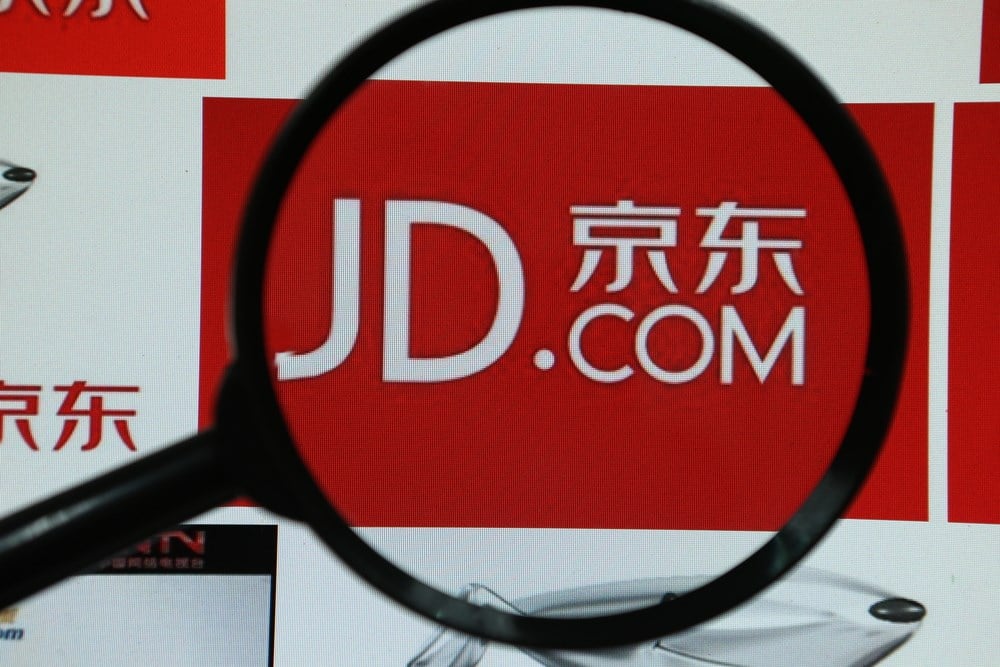Financial News
Thinking Of Buying The Dip On JD.com? Consider This First

As the Chinese economy faces a tipping point, the People's Bank Of China (PBOC) is faced with the choice of increasing credit and cheap liquidity via lowering rates or possibly facing deflationary environments. Throughout history, most, if not all, governments have chosen to print money, lower interest rates, and stimulate their respective economies in one way or another. If the Chinese go this route, JD.com (NASDAQ: JD) will benefit from the attributed purchasing power that will trickle down to the Chinese consumer's pocket.
Shares of JD.com are rising in the first few minutes of Thursday's trading session, rallying by as much as 7.2% amid the Chinese retailer reporting its first quarter 2023 earnings results. As management focuses on optimizing operational efficiency to drive profitability and further growth, JD reports earnings per share of RMB3.93 compared to a loss of RMB1.92 a year prior. As companies like Alibaba (NYSE: BABA) consider plans to break up their underlying businesses to cooperate with Chinese regulators, JD.com will be faced with duplicating strategies or challenging the changing market dynamics.
Resilient Growth Stages
JD.com has seen massive growth, expanding its logistics network and active customer base. Within management's earnings presentation, the company reports a 24% compounded average growth rate (CAGR) over the 2017-2022 period, broken down into a 30% CAGR for general merchandise revenue growth and a formidable 81% CAGR for logistics services.
Even amidst challenging economic conditions within China, the country faces the dire task of reopening its economy now that the effects of the COVID-19 pandemic have passed. The nation reported its year-on-year core inflation numbers on Wednesday night, reporting a 0.1% inflation rate. Management strategy implementations resulted in operating margins, which rose to near five-year highs of 2.6%—a 105% growth in the last twelve months measured earnings per share. Despite growing further profitability indicators, some executives and investors have lost confidence in the company's CEO.
Turning the Ship
Even though JD.com posted some attractive growth rates across the board and posted satisfying profitability measures for its investors, these rates did not befit the company's perceived 'growth stage.' The company's pace is going in the history books as the slowest growth rate on record. Xu Lei had worked his way up in the company to take the reigns as CEO ultimately. However, only after a year of service he has decided to give up the crown amid a shameful year of slowing growth.
Lei has chosen his successor as the company's CFO, Sandy Xu, who will overtake its leadership and guide it into further margin expansion and profitability initiatives. Markets have put aside the disappointing growth pace and have found new hope in Xu's plan to regain traction and bring JD.com back to its former glory. As a vote of confidence in the future of the company, management has shifted things a bit regarding their capital allocation policies.
During the fourth quarter of 2022, the board of directors approved a dividend program. In the face of a recovering economy and internal economics within the business, management saw fit to return some value to shareholders via a $0.31 per share dividend. Investors also count on the commitment from management to sustain this policy as long as further profitability is achieved, as portrayed in the first quarter of 2023 results. Throughout the first quarter of 2023, management deployed approximately $200 million into a new share repurchase program, effectively retiring 3.8 million shares off the open market.
JD.com analyst ratings see the light of day for the stock, as the average price target consensus stands at $61.08 per share. These targets would translate to a 63% upside even after today's monstrous rally. Technically speaking, some bulls may agree with analysts seeing the forming patterns. JD.com chart would suggest that the $33.75 to $36.50 range acts as a solid support level, where the stock has historically - and more recently - bounced off to rally by as much as 100%.
The most recent bounce off this support level comes with bottoming indicators, weekly RSI, and stochastic studies showing a bullish divergence pointing to a new and continued rally soon. From a macro perspective, Chinese ten-year government bonds are near-decade low, suggesting that equities and other risk assets may become more attractive to investors. When and if the PBOC decides to stimulate the economy to dig out a new inflation rate, these risk-on assets will outperform beyond investors' expectations.
Stock quotes supplied by Barchart
Quotes delayed at least 20 minutes.
By accessing this page, you agree to the following
Privacy Policy and Terms and Conditions.



